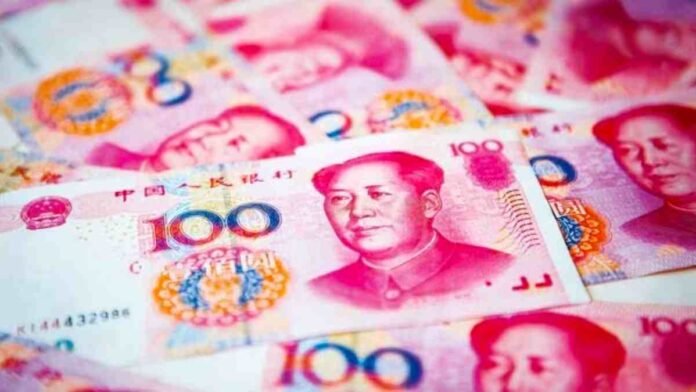China’s local governments are increasingly fining citizens in an effort to raise funds, sparking outrage on social media. This is part of a larger pattern whereby municipal governments are increasing their revenue streams through penalties.
In an effort to raise funds, China’s bankrupt local governments are increasingly fining citizens controversially. This has sparked outrage among social media users.
This month, a Shanghai restaurant owner was fined 5,000 yuan ($702) for selling unlicensed cucumber shreds, which sparked fury on Weibo, China’s version of Twitter. One user stated in a post that received 9.5 million views: “If they wanna fine you, even adding vinegar could be wrong.”
After being frequently penalised for exceeding limits—one driver had received citations totaling $38,000 in the previous two years—truckers in central Henan province made news last month when they questioned the accuracy of government vehicle weighing devices.
A state-backed corporation in Guangxi, one of China’s most indebted provinces, generated outrage in May when it raised parking prices, causing some commuters to rack up hundreds of yuan in costs. At a news conference, the mayor of Nanning city bowed and apologized when Weibo users questioned their authority.
These high-profile incidents are part of a larger pattern whereby municipal governments are increasing their revenue streams through penalties. According to a report in official media, an official Council examination conducted last year discovered that local government fines had gotten stiffer and more severe as a result of the epidemic and other economic challenges.
According to a Caijing Industry Research Center review of government statistics, alone Guangxi generated 13 billion yuan in fine revenue last year, up from 9% in 2021. This is comparable to nearly 14% of Guangxi’s tax revenue.
Victor Shih, an assistant professor at the University of California, San Diego who specializes in China’s banking regulations, called it “a sign of desperation.” “Arbitrary fines and predatory behavior will drive businesses away, especially small and medium businesses without the political protection of large state-owned enterprises,” the official said.
In recent years, Beijing’s property crackdown and the epidemic have struck China’s local governments, leaving them with insufficient funds to pay employees’ wages, construct roads, and service debt. China’s overall government debt is estimated by Goldman Sachs Group Inc. to be around $23 trillion, a number that takes into account the covert borrowing of hundreds of finance firms established by provinces and localities.
This month, the federal government reaffirmed that provinces must address their own hidden debt issues, forcing local officials to come up with more innovative ways to earn money for ongoing expenses. A grocery store in Shaanxi province received a 66,000 yuan punishment last year for selling 2.5 kilograms (5.5 pounds) of subpar celery, and in Guangdong, officials were discovered to have fabricated evidence to fine vehicles for alleged unlawful dumping in August.
According to Liqian Ren, director of Modern Alpha at WisdomTree Asset Management, “Fees and fines are going to become more visible with economic growth slowing, as these are things local bureaucrats have control over on a day-to-day basis,” adding that such measures are just a band aid and only help at the margins.
Government examination of taxes has increased as these situations provoke outcry on social media. Jiangsu, Inner Mongolia, Zhejiang, and Shandong local officials have begun cracking down on high parking prices as a result of the Guangxi street parking controversy last month. At a cabinet meeting in February, the then-Premier Li Keqiang urged the provinces to “resolutely put an end to arbitrary fees” and fines.
The charges are unlikely to have a significant impact on the municipal budget deficit. However, if provinces are allowed to handle their own issues, exorbitant fines will likely continue to be a concern, according to Zerlina Zeng, senior credit analyst at CreditSights Singapore LLC.
According to Zeng, local governments would continue to lose tax revenue, grow even more dependent on penalties, and become more dependent on transfers from the central government and other upper-tier governments as fines and other regulatory burdens “kill off the SMEs.”
“This could be harmful to the local business environment and create a vicious cycle in weak regions,” she continued.



